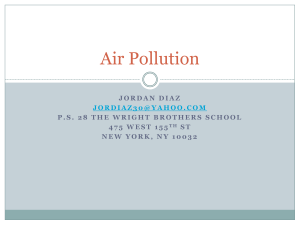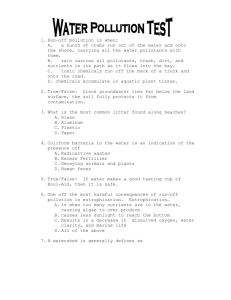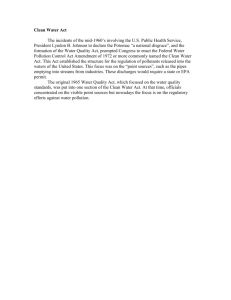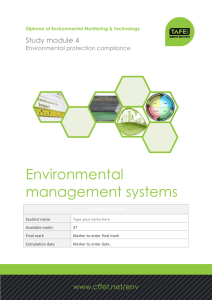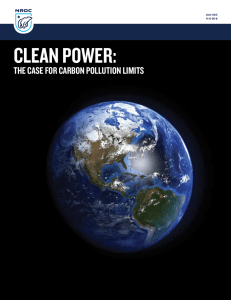CAA Celebrates 40 Years But Questions Remain about Progress Ahead Goings On
advertisement
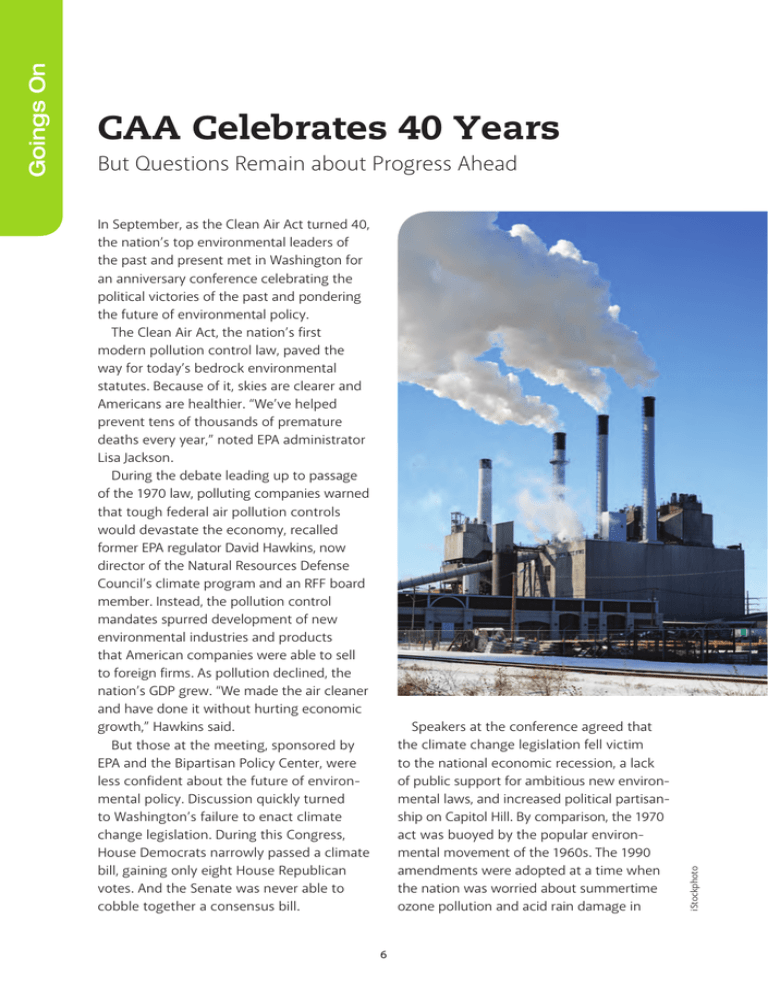
But Questions Remain about Progress Ahead In September, as the Clean Air Act turned 40, the nation’s top environmental leaders of the past and present met in Washington for an anniversary conference celebrating the political victories of the past and pondering the future of environmental policy. The Clean Air Act, the nation’s first modern pollution control law, paved the way for today’s bedrock environmental statutes. Because of it, skies are clearer and Americans are healthier. “We’ve helped prevent tens of thousands of premature deaths every year,” noted EPA administrator Lisa Jackson. During the debate leading up to passage of the 1970 law, polluting companies warned that tough federal air pollution controls would devastate the economy, re­called former EPA regulator David Hawkins, now director of the Natural Resources Defense Council’s climate program and an RFF board member. Instead, the pollution control mandates spurred development of new environmental industries and products that American companies were able to sell to foreign firms. As pollution declined, the nation’s GDP grew. “We made the air cleaner and have done it without hurting economic growth,” Hawkins said. But those at the meeting, sponsored by EPA and the Bipartisan Policy Center, were less confident about the future of environmental policy. Discussion quickly turned to Washington’s failure to enact climate change legislation. During this Congress, House Democrats narrowly passed a climate bill, gaining only eight House Republican votes. And the Senate was never able to cobble together a consensus bill. Speakers at the conference agreed that the climate change legislation fell victim to the national economic recession, a lack of public support for ambitious new environmental laws, and increased political partisanship on Capitol Hill. By comparison, the 1970 act was buoyed by the popular environmental movement of the 1960s. The 1990 amendments were adopted at a time when the nation was worried about summertime ozone pollution and acid rain damage in 6 iStockphoto Goings On CAA Celebrates 40 Years “It’s going to take some serious natural disaster that is associated in the public’s mind with climate change. Until there is something that goes beyond perhaps Katrina that is associated by sound scientists as a manifestation of what you’d expect with climate change, I don’t see much change.” William Reilly, former EPA administrator Environmental insiders at the anniversary celebration acknowledged that climate change legislation is off the radar screen in Washington for the foreseeable future. Until the public becomes more aware of and concerned about the impacts of global warming, the increasingly conservative Congress will not pass legislation to control greenhouse gases. “It’s going to take some serious natural disaster that is asso­ ciated in the public’s mind with climate change,” Reilly said. “Until there is something that goes beyond perhaps Katrina that is associated by sound scientists as a manifestation of what you’d expect with climate change, I don’t see much change.” – marjorie kriz hobson During current climate change debates, however, Republicans and Democrats have been at odds. “What did we lack this year?” House Energy and Commerce Committee chairman Henry Waxman asked at the anniversary gathering. “We had no bipartisan cooperation.” Today’s political standoff is not likely to change during the next Congress, according to former congressman Sherwood Boehlert. “The best we can hope for [on environmental action] is inertia,” he said. “The worst is disaster.” Former EPA administrator William Reilly said that for the near term, Washington should focus on energy efficiency and clean energy programs that could also cut 7 Goings On emissions of greenhouse gases. He argued that conservatives and the public are more likely to rally behind energy programs than a climate change bill. John Holdren, director of the White House Office of Science and Technology Policy, said the White House is looking to use laws other than the Clean Air Act to cut U.S. emissions of global warming pollution. “We’re looking very systematically at the array of levers that are available to the executive branch to take on different pieces of this problem,” he noted. “There is a lot of executive authority without waiting for the Congress.” northeastern forests caused by sulfur dioxide emissions from midwestern coal plants. In 1988, environmental issues helped Republican candidate George H.W. Bush win the New Hampshire presidential primary and ultimately the presidency, RFF president Phil Sharp said. “Plans to expand the Clean Air Act did not get going until President Bush was elected and put a plan on the table,” recalled Sharp, who at the time was a member of the House of Representatives. Bush’s staff worked closely with Democratic congressional leaders to craft the final 1990 air pollution amendments, which passed both houses of Congress by wide majorities.

